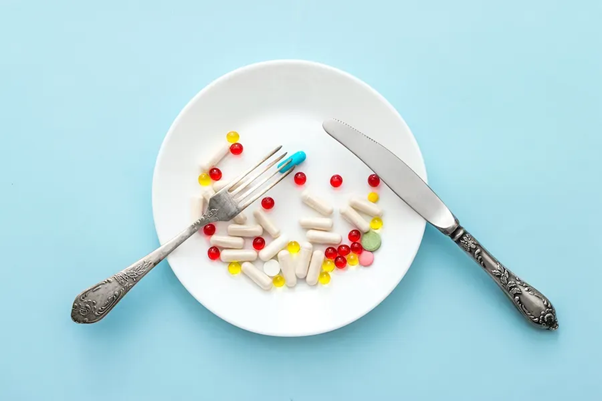Muslims all over the world are observing the holy month of Ramadan . The month of Ramadan is marked by fasting , prayers and community service. During this time of the year, Muslims consume food before sunrise and then fast for the entire day till sunset.
They break their fast after sunset with dates and water and then indulge into Iftaar-special dishes. Also read | Pre-Eid skincare: Expert shares tips to treat sun-exposed skin before Eid While fasting can have significant benefits for health, it can affect the skin, both positively and negatively. In an interview with HT Lifestyle, Dr Viral Desai, cosmetic plastic and hair transplant surgeon, medical director – DHI India said, “This unique cycle of fasting and feasting not only holds profound spiritual significance but also has notable effects on physical health, including the condition of the skin.

” Effects of fasting on skin Positive effects of fasting: Fasting can lead to regulated insulin levels which can reduce inflammation leading to healthier skin appearance, reduce acne, enhance skin elasticity. It can also benefit in conditions like psoriasis, eczema, etc. Also read | Oily skin to dry skin: Ultimate summer skincare guide for all skin types, know which one suits you the best Negative effects of fasting: Dehydration and dryness due to reduced water intake.
Dull complexion due to lack of sufficient nutrition. Dark circles and puffiness due to irregular sleep pattern and fatigue. Break outs and acne can happen due to dehydration, sleep disruption, changes in diet etc.
Skincare recommendations post fasting to get glowing, healthy skin Hydrate : Rehydrating your skin post fasting is the first and foremost step. Drink plenty of water throughout the day. Aim for at least 8-10 glasses of water.
Add hydrating foods like watermelon, cucumbers, coconut water to replenish lost fluid and electrolytes. Shift to gentle cleanser : Your skin’s natural oils may be out of balance after fasting. Hence it is important to use a mild, gentle, hydrating cleanser.
Opt for non-foaming, cream-based cleansers to maintain the skin. Double cleanse if you wear makeup but avoid harsh scrubbing. Moisturise with nourishing ingredients : After cleansing, apply a rich, hydrating moisturiser containing ingredients like hyaluronic acid, ceramides, glycerin, etc.
this will help lock the moisture in the skin and repair its natural barrier. If skin feels extra dry, you can add serums with hyaluronic acid before moisturizer or add overnight sleep mask in your routine 1-2 times a week. Apply sunscreen : Since this Ramadan has come in summers, Sunscreen becomes a major part of the skin care routine.
Applying sufficient sunscreen prevents dullness, tanning, hyperpigmentation. Choose a hydrating sunscreen with SPF 30 and above. Add vitamin C serum : If the skin looks dull, adding a vitamin c serum may help boost the radiance and also prevent environmental damage throughout the day.
Also read | Adult acne: Dermat explains what causes breakouts in 20s and 30s, shares tips for skincare routine and lifestyle changes Exfoliate : If you got acne break outs, mild exfoliation with salicylic acid-based serums may help if used once a week along with hydrating moisturizers because dehydrated skin produces more sebum leading to more acne. Facial massage : Facial massages: start with gentle facial massages to promote blood circulation and lymphatic drainage, reducing puffiness especially around the eyes. Note to readers: This article is for informational purposes only and not a substitute for professional medical advice.
Always seek the advice of your doctor with any questions about a medical condition..
Health

Post Ramadan skin reset: 5 skincare detox tips for a fresh start after fasting month

From staying hydrated to exfoliating and applying sunscreen, know these skincare routines to detox your skin.















